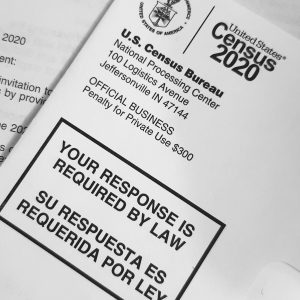Part Three Editing / Grammar Skills
Unit 17 Pronouns
Learning Objectives
- To learn personal, indefinite, and demonstrative pronouns
- To understand the common uses of pronouns as in subject, object, possessive, and reflexive forms
- To apply the noun-pronoun agreement rule and other uses of pronouns through multiple examples and a variety of writing situations
I. Pretest

Statistics from https://www.worldometers.info/world-population/. Last accessed on May 15, 2021.
II. Personal Pronouns and Their Uses
All pronouns are words to represent nouns. They can help avoid[1] repeating the same nouns and make the language more concise[2]. When you write a pronoun, you are using it to replace a noun in the previous sentence or previous part of the sentence.
1. The Worldometer is an organization located in the U.S. It provides real time statistics to everyone in the world.
- “It” refers to “the Worldometer”.
2. Some people might think that 3,000 was not significant. They might be expecting a much larger number.
- “They” refers to “some people”.
There are different types of pronouns depending on their functions in sentences. Pronouns that refer to people are called personal pronouns: I, you, he, she, we, they, herself, etc. “It” also belongs to this group.
|
Pronouns |
Subject Pronouns |
Object Pronouns |
Reflexive Pronouns |
|---|---|---|---|
|
Singular |
I You He She It |
Me You Him Her It |
Myself Yourself Himself Herself Itself
|
|
Plural |
We You They |
Us You Them |
Ourselves Yourselves Themselves
|
|
Pronouns |
Possessive Adjectives (Although these are adjectives, they are related to pronouns.) |
Possessive Pronouns |
|---|---|---|
|
Singular |
My Your His Her Its |
Mine Yours His Hers (none) |
|
Plural |
Our Your Their |
Ours Yours Theirs |
A subject pronoun is used as the subject of a sentence. In most cases, it is placed before a verb.
- There are many people in the world. They live in different parts of the globe.
- It is interesting to know that the population is growing faster in developing countries than in developed countries.
An object pronoun is used as the object of a sentence or the object of a preposition. It is used after a verb or after a preposition.
- When my niece was born, my whole family celebrated the event. We celebrated it with a big party.
- The baby was able to crawl[3] at three months old. We were very proud of her.
A reflexive pronoun is used while referring back to the subject. It is also used with “by” to mean “independently” or “without help”.
- My niece was able to feed herself at ten months old.
- Children like to try out new things by themselves.
A possessive adjective is followed by a noun to show ownership.
- When my uncle came to the U.S. to work a few years ago, he brought his whole family.
- My aunt was very happy with her new life here.
A possessive pronoun is used to replace the “possessive pronoun adjective + noun” already mentioned. It is also used in phrases like “a friend of mine” and “a coworker of hers”.
- Our company hires foreign workers, but Vishal’s company hires more. His company hires more foreign workers than ours. (ours = our company)
- The population in each country changes. Many years ago, there were more people in my country than in Nina’s. Now, hers has more than mine. (hers = her country; mine = my country)
- My new co-worker is also a friend of mine. I am a friend of his.
Exercise 1 . Read the following information about migrant workers. Some pronouns are boldfaced. Highlight the closest noun that each underlined pronoun refers to. Highlight only one noun for each pronoun. When you finish the entire exercise, you can retry or see all the answers. (To highlight, you position your computer curser on the verbs and right click.)

The first sentence is an example:
“They” refers to “people”.
Adapted from https://en.wikipedia.org/wiki/Migrant_worker#:~:text=A%20migrant%20worker%20is%20a,region%20in%20which%20they%20work.
Last accessed on July May 20, 2021.
III. Indefinite Pronouns and Their Uses
Indefinite pronouns refer to people, things, or ideas in general and can be the subject or object of a sentence.
|
for people |
everyone, everybody, anyone, anybody, someone, somebody, no one, nobody |
Use these words the same way as “he” or “she”. |
|---|---|---|
|
for things and ideas |
everything, anything, something, nothing |
Use these words the same way as “it”. |
Indefinite pronouns are singular. The easiest way to remember them is to think of them as he/she/it. Therefore, the verbs and other pronouns related to the indefinite pronouns must take the singular form as well.
- Everyone is doing his/her best for the family.
- Everything is ready for the family reunion. Everybody is excited to see his/her family again.
- No one needs to bring a gift for the reunion.
Repeating “he or she”, “his or her”, or “himself or herself” can be awkward[4], especially when it is used multiple times in the same piece of writing. Therefore, it is very common to turn an indefinite pronoun or a noun to its plural form.
- All people are doing their best for the family.
- All things are ready for the family union. All members are excited to see their family again.
Exercise 2. Choose and highlight the correct form of pronoun for the blanks in sentences 1-3. Choose and highlight the correct form of verb for the blanks in sentences 4-6. When you finish the entire exercise, you can retry or see all the answers. (To highlight, you position your computer curser on the verbs and right click.)
Examples:
When a migrant worker works elsewhere, there are both positive and negative effects on __________ (his/her , their) family.
A migrant worker often __________ (have, has ) to adjust to a new environment.
IV. Demonstrative Pronouns and Their Uses
There are four demonstrative pronouns: this, that, these, those.
| Demonstrative pronouns | Close by | Far away |
|---|---|---|
| Singular | this | that |
| Plural | these | those |
- This is the money from Joe. It will help the family tremendously[5].
- Joe is working in construction in another city. That is hard work for him.
- Last year, Joe was able to have a two-week vacation. He was very excited about that.
- Joe went on two short trips with his family. Those were happy trips.
“This” and “that” can also be used to mean the idea or situation just mentioned.
- Joe was coming home for a two-week vacation. This made the whole family very excited.
- Joe had not been home for two years. That was hard for the family.
This = the idea or situation that Joe was coming home for a two-week vacation
That = the idea or situation that Joe had not been home for two years
Exercise 3. The demonstrative pronouns and their related verbs are bold-faced in the following sentences about census. Click “True” for correct sentences and “False” for the wrong ones. You will get instant feedback on your answer. If a sentence is wrong, you will also see the correct answer and explanation in blue.

Adapted from https://www.pbs.org/newshour/nation/3-ways-that-the-u-s-population-will-change-over-the-nextdecade#:~:text=The%20U.S.%20population%20today%2C%20at,just%20under%201.4%20billion%2C%20respectively. Last accessed on May 20, 2021.
V. Noun-Pronoun Agreement
Noun-pronoun agreement means that whenever a pronoun is used, it must match the noun it refers to in number and gender.
Agreement in number: A singular pronoun must match a singular noun, and a plural pronoun must match a plural noun. In the following sentences, the underlined pronouns refer to the nouns in bold.
- When my niece was born, my whole family celebrated the event. We celebrated it with a big party. (singular)
- There are many people in the world. They live in different parts of the globe. (plural)
Agreement in gender: A masculine pronoun should match a masculine noun, and a feminine pronoun should match a feminine noun. A gender-neutral pronoun should match a gender-neutral noun. In the following sentences, the underlined pronouns refer to the nouns in bold.
- When my uncle moved to the U.S. a few years ago, he brought his whole family. (masculine)
- My niece could walk steadily at age one. We were very proud of her. (feminine)
- Many children have to take care of themselves at an early age. (gender-neutral)
- They love the U.S. for its better educational and career opportunities. (gender-neutral)
When you read the sentences you have already studied earlier in this unit, you will see that all the pronouns follow the noun-pronoun agreement rule.
Exercise 4. Here is the paragraph from the pretest of this unit. This time, fill in the correct pronoun for each blank. When you finish the entire exercise, you can click “Check” for feedback. You may also retry or see all the answers.
VI. Other Rules in Pronouns
1. When there is already a subject in the sentence, do not add a pronoun as part of the subject.
My neighbors theymigrated to the U.S. last year to work as data analysts.- My neighbors migrated to the U.S. last year to work as data analysts.
Sanjay heis working in a trading company downtown.- Sanjay is working in a trading company downtown.
2. Do not use “me and my…”.
Me and my cousinlive in the same city.- My cousin and I live in the same city.
- Our grandparents visit
me and my cousinevery year. - Our grandparents visit my cousin and me every year.
3. Make the pronoun and the noun it refers to very clear. If the pronoun causes confusion, write the noun instead.
- Sanjay told Guang that
he was happy about his job. (Who is “he”, Sanjay or Guang?) - Sanjay told Guang, “I am happy about my job.”
- Sanjay told Guang, “I am happy about your job.”
- Sanjay was happy about his job, and he told Guang so.
- Sanjay was happy about Guang’s job, and he told him so.
4. Change the pronouns used in the reported speech if needed to keep the meaning of the sentence logical.
- When I asked my friend about the 2020 Census results, he said that
youshould check them online. - When I asked my friend about the 2020 Census results, he said, “You should check them online.”
- When I asked my friend about the 2020 Census results, he said that I should check them online.
- My grandmother always reminds me that
youmust take good care ofyourselfin the new country. - My grandmother always reminds me, “You must take good care of yourself in the new country.”
- My grandmother always reminds me that I must take good care of myself in the new country.
5. Do not be confused by the following:
they are = they’re ≠ their
you are = you’re ≠ your
it is = it’s ≠ its
- The computer and medical fields provide a lot of employment.
Theirvery popular among migrant workers. - The computer and medical fields provide lot of employment. They are (They’re) very popular among migrant workers.
- The job application has started.
Yourwelcome to apply. - The job application has started. You are (You’re) welcome to apply.
- The new position is out of town.
Its100 miles away from home. - The new position is out of town. It is (It’s) 100 miles away from home.
It’slocation is not convenient, butit’ssalary is good.- Its location is not convenient, but its salary is good.
Exercise 5. The following paragraph is about census in other countries. There are six more errors in the use of pronouns (not including the example). Find them and correct them. The first one is an example.

What about Other Countries?
A census helps a country know how many people there are and how policies can be adjusted[6] to best serve it (them). The U.S. it is not the only country that has a census every ten years. Other countries such as China and Thailand do the same. Some countries like Japan and Canada they have a census every five years. Whether in our native country Thailand or in the U.S., me and my family participate in the census every time it happens. My parents always say that you should not miss any census because the government will use it’s results to better manage the country. My parents are model citizens. Their always doing their best.
VII. Unit Review Practice
Exercise 6. Read the following paragraph about foreign-born workers. Choose and highlight the most appropriate pronouns in the blanks. When you finish the entire exercise, you can retry or see all the answers.
The first sentence is an example:
When migrant workers go to another country instead of another city of __________ (they, their) own country, they are often called foreign-born workers.
Adapted from https://www.bls.gov/opub/ted/2020/foreign-born-workers-made-up-17-point-4-percent-of-labor-force-in-2019.htm, U.S. Bureau of Labor Statistics, May 29, 2020. Last accessed on June 1, 2021.
Exercise 7. Fill in the blanks with the most appropriate pronouns in the following paragraph about a going-away party. You will get instant feedback on your answers. At the end of the exercise, you may retry or see all the answers.
The first sentence is an example:

The party for Yuko was fun. Yuko, Elena, and I met in our ESL class two years ago. Since then, we have become good friends.
Exercise 8. Read the following paragraph about Americans teaching English overseas. There are six more errors in the use of pronouns (not including the example). Find them and correct them. The first one is an example.
Teaching English Overseas[7]

Many Americans go overseas to work. He (They) can work in a U.S.-based company or in a company of the foreign country where their living. One of the most popular overseas jobs is teaching English as a foreign language (EFL). Native English speakers are very welcome because they not only teach English but also share different cultural perspectives[8]. Its also a great learning experience for the American teachers themselves. Of course, it will be extremely helpful if the EFL teachers can speak the local language. However, there are many opportunities for them to learn when their overseas. EFL teachers can teach in all types of settings – kindergartens, elementary schools, high schools, colleges and universities, and even companies. Depending on the country and type of setting, the qualifications and benefits may be different. For example, for most positions in elementary and high schools, an American teacher needs to have a bachelor’s degree, a teaching certificate or something similar, and some related work experience. It will be better if he or she has taught in another similar overseas program. Naturally, if someone accepts the job, they must have a passport and a working visa before leaving the U.S. The benefits usually include a reasonable salary, housing, and travel expenses. Some Americans apply for an overseas position directly by himself because the process might be more direct. Some others like to use an agency to help them as it can provide useful resources and tell them what to do. If anyone is interested in teaching overseas, they can find a lot of information online.
- What do you think of leaving home to work in a far-away city or country? What would be the advantages and disadvantages for you and your family?
- Does your native country conduct[9] a census regularly? If so, how often? How are the census results used?
- Have you ever participated in a census? If so, where was it? When was it? Were there any questions that you found interesting or surprising?
- The following is from U.S. and World Population Clock https://www.census.gov/popclock/. Is any of the information below surprising or interesting to you? Why do you think so?
-
- At 3:30 pm on May 17, 2021
- 332,339,884 people in the U.S.
- One birth every 8 seconds.
- One death every 12 seconds.
- One net[10] international migrant every 670 seconds.
NSNT Practice

Go to The NSNT Free Writing Approach and Additional Weekly Prompts for Writing in Appendix A. (Open Appendix A here.) Choose two topics that you have not written about. You may start with the NSNT approach. Then revise and edit your paragraphs. Pay attention to the use of word forms. You are encouraged to share your writing with your partner and help each other improve.
Vocabulary Review

The words here have appeared in this unit. The best way to learn them is to guess the meaning of each word from the context. Then hover your computer mouse over the number beside each word to check its meaning and part of speech. These words are also listed in the footnote area at the end of each unit.
Here, you can use the flashcards below to review these words.
Summary
- A pronoun refers to a noun.
- Subject pronoun – as the subject of a sentence, usually used before a verb.
- Object pronoun – as the object of a verb or a preposition, usually used after a verb or a preposition.
- Possessive adjective – to show who or what owns it, followed by a noun.
- Possessive pronoun – to replace the “possessive adjective + noun” already mentioned.
- Indefinite pronoun – to represent people, things, and ideas in general. All indefinite pronouns are singular and must take a singular form of the verb and the singular form of other related pronouns (he, she, it).
- Demonstrative pronoun – to point to a close-by or a far-away person, thing, or idea. There are four such pronouns: this, that, these, those.
- Pronoun rules include:
- All pronouns must follow the noun-pronoun agreement rule; that is, they must match the noun they are referring to in number and gender.
- Do not use a subject pronoun when there is already a subject of the sentence.
- Do not use “me and my…”.
- When the use of pronoun causes confusion, use a noun instead.
- Change to appropriate pronouns in a reported speech.
- they are = they’re ≠ their; you are = you are ≠ your; it is = it’s ≠ its
Media Attributions
- people moving around on the street © Photo by Timon Studler on Unsplash
- three birds migrating © Photo by Chris Briggs on Unsplash
- US Census 2020 paper © Photo by Enayet Raheem on Unsplash
- people on boats in Bangkok, Thailand © Photo by Frida Aguilar Estrada on Unsplash
- a bunch of colorful balloons © Photo by Gaelle Marcel on Unsplash
- a person with a toy plane on a world map © Photo by Andrea Piacquadio from Pexels
- a pen writing in a notebook © Photo by Aaron Burden on Unsplash
- a page in a dictionary © Pixabay
- avoid: verb, keep away from ↵
- concise: adjective, clear, without unnecessary words ↵
- crawl: verb, move along with hands and legs ↵
- awkward: adjective, unnatural, uncomfortable ↵
- tremendously: adverb, very much ↵
- adjust: verb, make changes based on needs ↵
- overseas: adverb, across the ocean ↵
- perspective: noun, an idea or a thought ↵
- conduct: verb, have, perform, do ↵
- net: adjective, related to the leftover after deductions ↵

